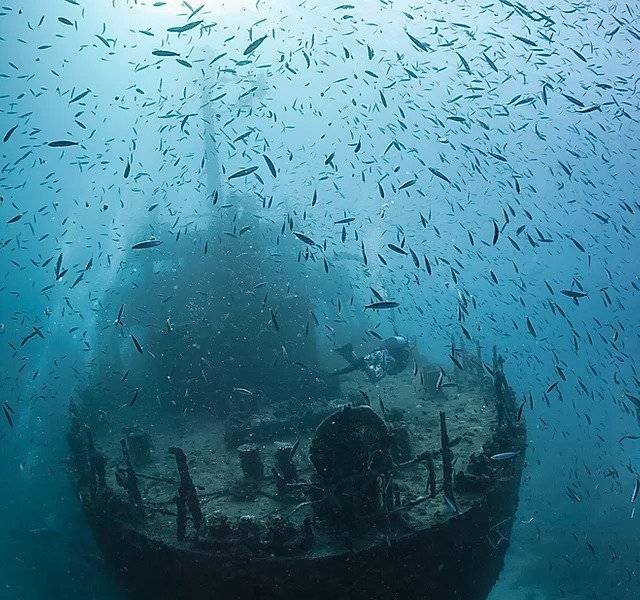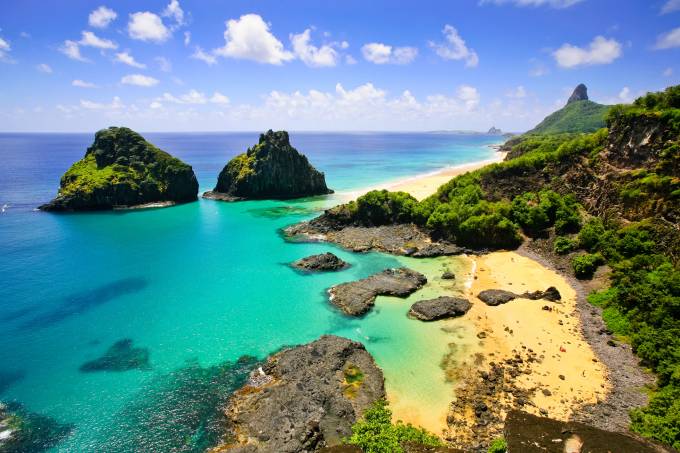RIO DE JANEIRO, BRAZIL – Without any established environmental rules, Jair Bolsonaro’s government plans to create 73 artificial shipwrecks in the main tourist spots along the Brazilian coast, in addition to releasing 47 additional sites for sport fishing.
The majority of the planned locations are environmental protection areas, with strict rules for biodiversity control. The Fernando de Noronha archipelago, on the coast of Pernambuco, is but one of the 15 locations.

The Estado de S. Paulo newspaper had exclusive access to an internal document from the Navy, which analyzed each of the locations intended by the government. The study, dated February 11th, is a reply to the Ministry of the Environment’s Tourism Secretariat. The Navy does not deal with the environmental impact, limiting itself to assessing whether these artificial reefs could interfere with the safety of navigation, leading to risks.
The Navy approved virtually all sites and in cases where it found risks, due to such factors as low depth, for instance, it suggested other points. In practice, all requests were approved. In Fernando de Noronha, eight points were assessed for diving and another eight for sport fishing, rather than the 12 locations listed by Embratur president Gilson Machado.
In addition to the archipelago, there was approval for the installation of artificial reefs in two other locations in Pernambuco, Porto de Galinhas (9 wrecks) and Paulista (8 wrecks).
Alagoas was granted approval for shipwrecks in Maragogi (eight) and São Miguel dos Milagres (six). In Bahia, the targets are Salvador (eight) and Forte (one) beaches. The plan in Paraíba is for ten shipwrecks off the coast of the capital João Pessoa.
In Rio, the Navy saw room for eight shipwrecks, in addition to a polygon for the implementation of a “museum of artificial reefs”. In São Paulo, Ilhabela would have five wreck sites. Another two points were referenced in Santa Catarina, with locations in Florianópolis (five) and Penha (one). Even Brasília, with its Paranoá Lake, underwent the Navy’s screening, which cleared the release of elements in the bottom of the lake.
Despite the Navy’s endorsement, not a single project has environmental licensing to be carried out. For three days, the newspaper questioned the Navy on the matter, but there was no comment.
As the paper disclosed the day before yesterday, the environmental regulations that governed the creation of artificial reefs were extinguished by the Brazilian Institute of Environment and Renewable Natural Resources (IBAMA) in June last year, and nothing was put in their place. Consequently, in practice, there are no regulations today.

The topic is a top priority for Jair Bolsonaro, who has already declared that he has been given indications from foreigners that there would be US$1 billion (R$4.6 billion) in investments in Angra dos Reis, contingent on changes in environmental legislation. The president’s plan is to convert Angra into a “Brazilian Cancún”.
In November, the Ministry of Environment submitted a longer list of 128 “suggested points for implementing submerged structures” to the Chico Mendes Institute (ICMBio). The list forwarded and approved by the Navy, was therefore reduced.
Artificial wrecks are not restricted to scrapped ships. The Army was approached by Embratur about what machinery would be available to be deposited at the bottom of the sea. In reply, it reported that there was a wreckable missile launcher and ten anti-aircraft cannons.
Risks
Brazil already features a number of artificial reefs along the coast of Paraná and Pernambuco. The new plan is headed by Senator Flávio Bolsonaro, who was on the Fernando de Noronha a few days ago, along with the president of the Brazilian Tourism Institute (Embratur), Gilson Machado. He was criticized in a letter by the League of Women for the Oceans, a group that includes among its members the renowned ocean-navigating Schurmann family and Marina Klink, the wife of maritime sailing explorer Amyr Klink.

